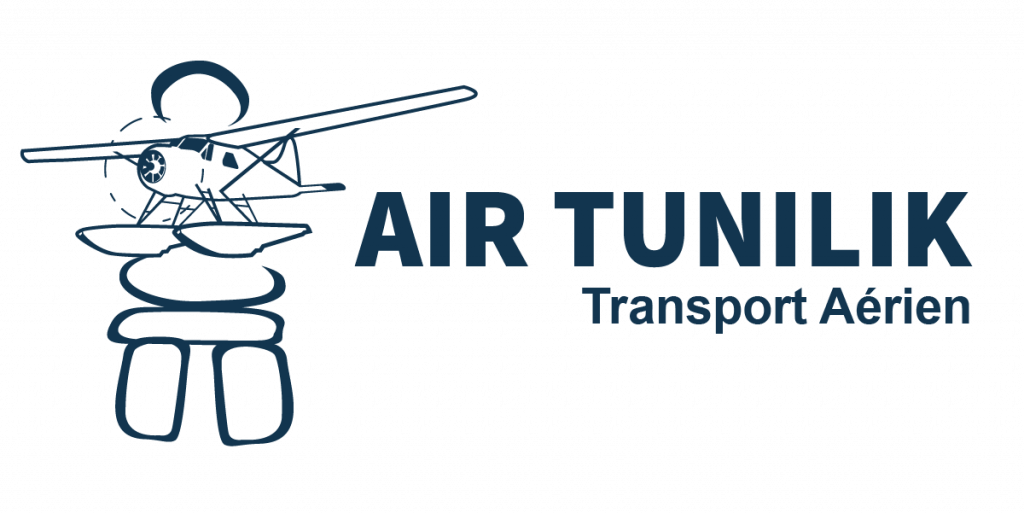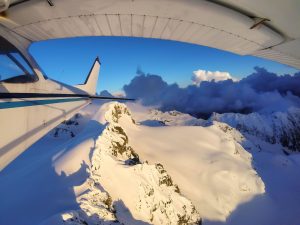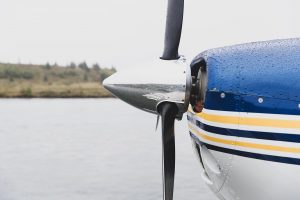Quebec is a hunter’s paradise, with forests covering more than half of the area. It’s no wonder that nearly 500,000 hunters live in Canada’s largest province. Hunting is an age-old Quebec practice that is rigorously monitored to protect the safety of all hunters and the sustainability of game animals, given the crucial ecological, cultural, and economic role it plays.
For hunters of all levels, we’ve put together this handy Quebec hunting guide. Get the inside scoop on hunting territories and restrictions, as well as suggestions on how to organize a successful and safe hunting trip.
Hunting’s Role in Biodiversity
Hunting is more than just a sport or a profitable business. It also aids in the preservation of biodiversity. Hunting is intended to regulate populations of specific species to conserve the integrity of local plant and animal life. According to rules implemented by the Minister of Forests, Wildlife and Parks across the province, hunting, when done properly, reduces the number of animals in a herd, allowing it to maintain a healthy balance.
What kind of game can you hunt in Quebec?
There are two types of games in Quebec: big games and small games. Moose, black bear, caribou, coyote, wolf, and white-tailed deer are all big game in Quebec. Wild turkey, partridge, ruffed grouse, spruce grouse, snowshoe hare, and willow ptarmigan are examples of small game. Snow geese, ducks, Canada geese, and other migratory species are also popular among hunters in Quebec!
What type of hunting is most popular in Quebec?
Moose hunting is most popular in Quebec. It’s a popular attraction for hunters from all around Quebec and beyond. Thousands of moose hunting licenses are awarded each year. The popularity of white-tailed deer hunting is also rising.
Hunters were able to obtain a second license to hunt this sort of animal for the first time in 2020. With 18,000 licenses issued each year, black bear moose hunting is another important type of hunting in Quebec.
What are the typical habits of a moose?
- Trails
Moose tend to stick to a schedule. They regularly go across the forest on the same pathways to conserve energy. Moose trails are simple to recognize due to the size of their legs and hooves.
- Teeth marks on the bark
When there aren’t enough leaves to go around, moose eat tree bark, particularly red maple bark. If you can still smell the sap, the tooth marks are still fresh.
- Droppings
Seasonal changes in moose droppings (or scat) are noticeable. When leaves and aquatic flowers are sparse, they are fibrous. When these food sources are plentiful, they are muddier.
- Rutting pit
A moose rutting pit (also known as a wallow) is a hole dug by the male and filled with urine to lure the female for mating. Due to their distinct appearance and odor, these pits are easy to spot. A stinky pit indicates the presence of a bull nearby.
Hunting Territories
Moose can be found in a variety of forests in Quebec. However, some areas, like the Bas-Saint-Laurent, Saguenay-Lac-Saint-Jean, Laurentides, Mauricie, Gaspésie, Côte-Nord, and Outaouais, are particularly sought after by moose hunters. The moose’s preferred habitats are often mature hardwood and mixed woods.
How to pick the best spot for your salt lick
A moose salt lick is a form of bait used for moose hunting. Salt licks are just salt blocks that have been supplemented with other minerals and nutrients. The hunting blind is usually located next to fir or spruce trees, near the salt lick. It’s critical to choose a spot that is quiet, shady, wet, and set back from the road, preferably near a marsh or beaver dam.
Quebec Moose Hunting Tips
Here are a few pointers to help you boost your chances of catching one of these gorgeous creatures:
- Don’t use your ATV around your salt lick.
- Cover your scent with synthetic urine or urine from a rutting pit.
- Wear clean, dry clothes. Damp clothes have a strong scent.
- Place two salt blocks of different flavors at the same site.
- Pay attention to the prevailing winds and try to stay upwind so your scent doesn’t give you away.
- Copy the moose’s behavior by walking slowly and making frequent stops.
- Imitate the male moose’s constant bellowing, breaking off branches here and there, and moving closer to the cow.
- Look for streams and damp, shady areas where moose hide to cool off on hot summer days.
Take a seaplane trip to the best outfitters
Hunting regulations in Quebec
Quebec is divided into 28 hunting zones, with several of them subdivided into subzones based on game species distribution. Both public and private land are included in these zones. Specific hunting regulations in Quebec may apply to some locations, such as controlled harvest zones (ZECs), outfitters, and wildlife reserves. To hunt on private land, it’s important to have permission. You have the same rights as other outdoor enthusiasts when hunting on public territory, with no exclusive rights or preference.
What are exclusive hunting rights?
Exclusive hunting rights in certain territories are leased out by MFFP to outfitters. This means that only clients of certain outfitters are permitted to hunt in that area. These hunting trips tend to be unique due to the experience they offer!
Regulations
Every two years, on April 1, Quebec’s sport hunting regulations are revised. They provide information that every hunter should be aware of, such as hunting seasons, permissible weapons, required permits, and basic hunting guidelines. To hunt lawfully in Quebec, you must meet the following requirements:
- Have a hunting (or trapping) license that corresponds to the weapon used
- Have a hunting license
- Follow the rules governing the game hunted
- Abide by authorized hunting periods and limits
- Comply with all general and specific hunting rules
Hunting ethics
A good hunter follows the hunting ethics while also respecting the animal, the environment, and others. Everything from how hunters prepare their excursions to how they consume the meat is covered under ethical hunting.
Tips for a Successful Hunting Trip
The hunt begins long in advance of hunting season. Preparation is essential, and it might make the difference between a successful hunt and returning home empty-handed. Here are some suggestions and things to consider in order to have a successful hunting trip:
Location
Your favorite game is merely one of many criteria to consider while selecting a hunting location. You should also consider hunting seasons and rules, as well as the kind of accommodations and packages that are available. If you don’t have permission to hunt on private land, there are numerous eastern Canadian outfitters and wildlife reserves that offer guided or unguided hunting packages. Don’t forget to make a reservation!
Rules and regulations
Once you’ve picked where you want to go hunting, make sure to familiarize yourself with the sport hunting regulations and restrictions in effect in the area you’ve chosen.
Gear
Nothing is more aggravating than forgetting to bring important equipment with you. Here’s a checklist to ensure you’re prepared for your hunting trip:
- Your ATV and the full ATV toolkit
- Toiletries and first aid supplies
- Clothing: Hunting cap and jacket, wool socks, work gloves, shoes, pants, shirts, wool jacket, wool sweaters, raincoat, sewing kit for emergency repairs, etc.
- Hunting gear: Appropriate caliber rifle, slingshot for hares and partridges, rifle case, ammunition (remember to adjust your sights), synthetic urine, hunting license, tools and equipment for emergency gun repair, rifle cleaning kit, binoculars, ax, maps, compass, knives, heavy-duty rope, matches (in an airtight container), cotton bag for wrapping meat, tumpline, tape measure, meat saw, and blades.
Paperwork
Make sure you have all of the necessary hunting and fishing licenses and insurance before you go. Is your all-terrain vehicle (ATV) insurance up to date? Is your gun permit still valid? Make sure you have all of the necessary documentation to avoid any unwanted surprises. That way, you’ll be able to hunt lawfully and without worry!
Hunting in Quebec During the Pandemic
Like all other activities, hunting in Quebec during the pandemic has had to go by health regulations enacted by public health authorities to safeguard hunters and communities. In 2020, the Minister of Forests, Wildlife and Parks imposed hunting travel restrictions, which had a significant impact on outfitters, wildlife reserves, and other isolated areas.
The pandemic has also made obtaining the necessary licenses and certificates more difficult. Furthermore, hunting attracts a large number of visitors from outside of Quebec who would otherwise be unable to exercise their hobby here.
Quebec hunters, on the other hand, received more hunting licenses than usual, and many took advantage of the opportunity to reconnect with the sport. In 2020, the number of moose slaughtered was not as low as in previous years.
Here are some tips from the Quebec government on how to hunt safely during the pandemic:
- Choose hunting grounds near your home.
- Use stands or blinds that allow you to keep at least 2 meters from others.
- If blinds are shared with other hunting groups, disinfect them before using them.
- When cleaning your kills, wear disposable gloves and wash your hands and tools in a container of at least 4 liters of soapy water.
- When removing a large game animal from the harvesting site, work alone or with a person who lives at the same address as you, if possible. When regulations allow (e.g., for moose), cut the animal into quarters so it’s easier to transport. If you need assistance from someone who doesn’t live with you, always apply physical distancing rules. If that is not possible, be sure to wear a face covering.
- Shop online for your gear and have it delivered.
- Only travel with people who live with you. Bring more ATVs if needed.
- Use online services where possible, for example, to purchase hunting rights.
Plan a hunting trip
Ready to plan your hunting trip? Feel like living a unique experience? Go on a seaplane adventure to hunt or fish in one of Quebec’s 600 outfitters. Air Tunilik supports the economy of the remote regions of the province to give you a chance to explore exceptional territories where wildlife abounds with experienced guides.
Air Tunilik works hand in hand with outfitters in Quebec to promote local tourism, transport the necessary equipment and orchestrate arrivals and departures by seaplane throughout the season. Our service is available from the melting of the ice in June until October / November.






